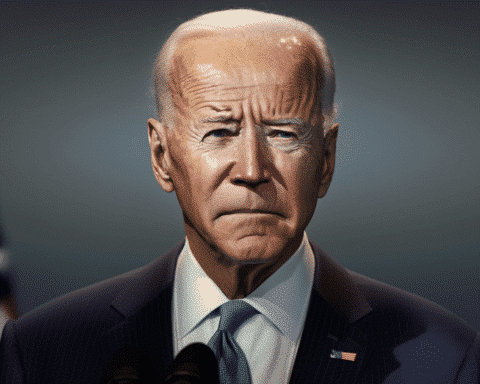The Justice Department brought a lawsuit against Texas Governor Greg Abbott for implementing a floating barricade on the Rio Grande. This is the latest measure taken by the Republican governor in an attempt to deter immigrants from crossing the U.S.-Mexico border.
The lawsuit requests that a federal judge in Austin order Texas to dismantle the approximately 1,000-foot (305-meter) chain of conspicuous, wrecking ball-sized orange buoys. The Biden administration contends that the barrier presents both humanitarian and environmental hazards. The legal action alleges that Texas unlawfully installed the obstruction without authorization between the border towns of Eagle Pass, U.S., and Piedras Negras, Mexico.
The buoy deployment represents a recent intensification in Texas’ border security strategy, encompassing razor-wire fencing, arrests of immigrants on trespassing grounds, and transportation of asylum-seekers to Democratic-run cities in other states via buses. Critics have repeatedly queried the efficacy of the two-year-long initiative known as Operation Lone Star. This month, a state trooper reported that some of these measures have injured migrants, placing the operation under increased scrutiny.
Governor Abbott had previously written a letter to President Joe Biden in anticipation of the lawsuit, defending Texas’ right to erect the barrier and blaming Biden for jeopardizing migrants by not taking more action to dissuade their journey to the U.S. Abbott stated, “Texas will see you in court, Mr. President.”
The Biden administration claims unlawful border crossings have significantly reduced since implementing new immigration policies in May. U.S. Customs and Border Protection reported a 30% decrease in migrant encounters in June, the first month since the policies took effect. This figure represents the lowest levels since Biden’s initial month in office.
White House press secretary Karine Jean-Pierre informed reporters that Governor Abbott’s overall policies have impeded U.S. Border Patrol agents access to the Rio Grande. She criticized the governor’s measures, saying, “Those are unlawful actions that are not helpful and are undermining what the president has put forward and is trying to do.”
Last week, the Justice Department warned Texas to commit to barrier removal by Monday or face a lawsuit. The Department asserted that the buoy barrier “poses a risk to navigation, as well as public safety, in the Rio Grande River, and presents humanitarian concerns.”
Texas deployed the buoys without informing the International Boundary and Water Commission or the U.S. Army Corps of Engineers. Mexico’s secretary of state urged the federal government to intervene, claiming the barrier breaches international treaties.
This isn’t the Biden administration’s first lawsuit against Texas concerning its border actions. In 2021, U.S. Attorney General Merrick Garland accused Texas of encroaching on and disrupting the federal government’s authority to enforce immigration laws. This followed Abbott’s order for state troopers to halt vehicles carrying migrants under the pretext of preventing the spread of COVID-19.
The conflict over border control measures between the Biden administration and Texas authorities continues to escalate, spotlighting the ongoing national discourse around immigration policies. As the legal battle unfolds, its outcome may have far-reaching implications for states’ rights, federal jurisdiction, and the future of U.S. immigration policy.




